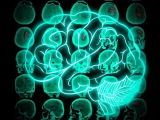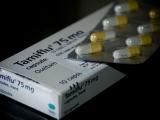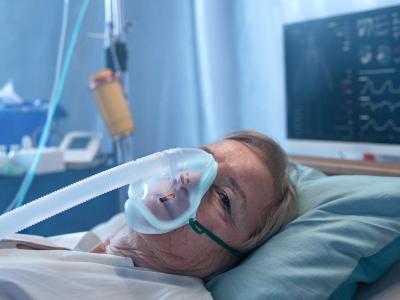Jan 21, 2011 (CIDRAP News) Federal health officials said yesterday they are exploring a possible link between febrile seizures in children younger than 2 after receiving Sanofi's Fluzone flu vaccine, based on a preliminary signal picked up by the US Centers for Disease Control and Prevention's (CDC's) vaccine safety monitoring system.
The Food and Drug Administration (FDA) said in a statement that it and the CDC recently detected an increase in the number of febrile seizures following Fluzone vaccination reported to the Vaccine Adverse Event Reporting System (VAERS). Sanofi's Fluzone is a trivalent inactivated vaccine (TIV) and is the only flu vaccine recommended this year for infants and children ages 6 to 23 months.
The FDA said the VAERS information is preliminary and is a sign that further investigation is needed. It said probes are under way to determine if there is a link between the vaccine and the seizures or if other factors are involved. Also, the FDA said it is working closely with Sanofi to obtain more information and further investigate any possible links.
The agencies haven't seen an increase in febrile seizures in people older than 2 after immunization with TIV or the live attenuated influenza vaccine FluMist, which is administered as a nasal spray.
Federal officials said an unusually high body temperature can cause a seizure, and that febrile seizures can result from several common childhood infections such as colds, ear infections, and flu, and in rare instances can occur after vaccination. A 2006 New England Journal of Medicine study estimated febrile seizures occur in 1% of children under age 5 with lab-confirmed influenza and in 9% of kids who are hospitalized with flu.
CDC background information said febrile seizures in children aren't uncommon, and about 2% to 5% will have at least one. Most occur between ages 6 months and 5 years, with a peak age of 14 to 18 months.
They noted that though febrile seizures can be frightening, nearly all children who have them recover quickly with no long-term effects.
The CDC said its recommendations for flu vaccines in children have not changed. It emphasized that the risk of severe flu illness is higher in children, especially those younger than age 2, and that flu vaccination is the best way to protect against the disease. The CDC for the first time this year recommended the flu vaccine for all people 6 months old and older.
Sanofi said in a statement sent to journalists that it is working closely with the FDA to investigate the VAERS findings. "We take reports of adverse events very seriously. As a result, we closely investigate all adverse event reports we receive and continuously monitor our safety database. Reporting rates of febrile seizure after administration of our influenza vaccine have been stable for years even as distribution of the pediatric formulation has increased," the company said.
So far no correlation between the vaccine and febrile seizures has been established, and adverse events after vaccination can be related to the vaccine or be coincidental, Sanofi said, adding that VAERS identified a potential safety signal that represents a higher-than-expected number of febrile seizures compared with past data and that the FDA is investigating if the increase in vaccinated children is real.
News that US officials are investigating a link between febrile seizures in young children following flu vaccine follows a similar situation that arose in Australia and New Zealand during their most recent flu season, which ended in early fall.
In April 2010, Australia and New Zealand recommended that clinicians suspend flu vaccination in children younger than 5 after a national investigation found higher-than-expected rates of fever and convulsions after flu immunization, mainly with Fluvax, made by CSL Ltd, in that age-group.
CSL, based in Australia, removed the vaccine from the market. Further studies on the possible link between the company's vaccine and febrile seizures never found a clinical, biological, or epidemiologic reason that would explain the higher febrile seizure rates in kids.
In August 2010 the CDC's vaccine advisory group recommended that CSL's seasonal flu vaccine targeted to children ages 6 months to 8 years not be used in the United States during the Northern Hemisphere's 2010-11 flu season. It said the vaccine, known as Afluria in the United States, could be used in children ages 5 through 8 at high risk for flu complications if no other vaccine was immediately available.
See also:
Jan 20 FDA statement
CDC Q & A on febrile seizures
Jun 1, 2010, CIDRAP News story "Australian flu-vaccine probe confirms increased reactions in small children"
Aug 5, 2010, CIDRAP News story "ACIP says not to use CSL flu vaccine in small children"



















